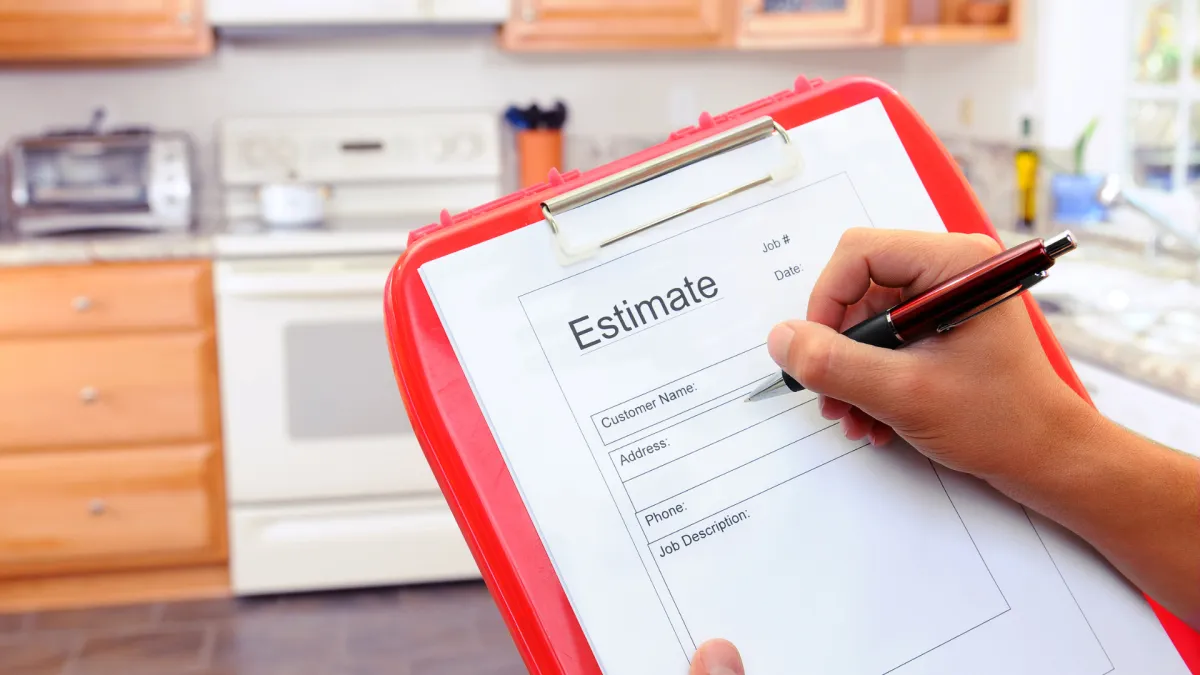Blog Archive

Keep Your Renovation Budget in Check
Get the best value for your money and avoid going over budget
- Have a Plan and Stick to It
- Get Multiple Bids
- Always Have a Contingency
Don't miss out on these essential tips for managing your next home improvement projects.
Read on for the whole story!
Managing home improvement projects can be overwhelming, and staying on budget is critical.
The last thing you want is to find yourself in the middle of a kitchen remodel or home addition with cost overruns from unexpected expenses that blow your budget out of the water.
Hey, we've all been there and I've learned a few things along the way that I'd like to share with you in this blog article.
Here are 10 things you can do to better manage your budget while making repairs and improvements.
1. Set a Realistic Budget:
The first step in managing your renovation costs is to set a realistic budget.
Take the time to thoroughly assess the property and identify the necessary repairs and improvements.
Consult with contractors and other professionals to get accurate cost estimates for the work that needs to be done.
2. Have a Plan and Stick to It:
Before you start any home improvement project, it's crucial to have a detailed plan in place.
This plan should include a budget for each part of the project, a timeline for completion, and a detailed scope of work.
This will help you stay organized and focused on the tasks at hand, and it will also help contractors understand the scope of the project and provide accurate quotes.
3. Get Multiple Bids:
When it comes to hiring contractors for your home improvement projects, don't settle for the first bid you receive.
Always get multiple bids.
Get multiple bids from different contractors to compare and ensure you're getting the best value for your money.
Don't forget to check the contractor's references and previous work to ensure they are reliable and have a good track record.
(You get what you pay for. Don’t say I didn’t warn you.)
4. Negotiate Prices:
Don't be afraid to negotiate prices with contractors and suppliers.
You may be able to save money by asking for a discount, especially if you are providing them with repeat business or a large volume of work.
You don’t know if you don’t ask.
And let me tell you, saving 5% here, and 10% there really starts to add up.
Whether it goes back into your pocket or covers unexpected expenses it’s worth it to ask.
5. Don't Over-Improve the Property:
Complete the most critical repairs first, such as those related to safety, structural integrity, and code compliance.
Then, focus on making improvements that will provide a good return on investment like the kitchen and bathrooms.
Over-improving can lead to an inflated budget that may not be recouped in equity.
6. Utilize Cost-Effective Materials:
Be mindful of the cost of fixtures and finishes, as they can quickly add up.
Know your neighborhood and market. You don't always have to use the most expensive materials to achieve great results.
Look for cost-effective alternatives that will still look high-quality (with good durability for rentals).
Think Luxury Vinyl vs. Engineered Hardwood.
OR
Laminate Countertops vs. Stone
Stick to a standard level of finishes and fixtures that are comparable to other properties in the neighborhood and market.
7. Regularly Inspect the Work:
Time is money.
It's essential to keep an eye on the schedule and ensure that the project stays on track.
So, don't wait until the end of the project to inspect the work. Regularly check in on the progress to ensure that the work is being completed in a timely manner and to your standards.
By being proactive you can catch any potential issues early on and avoid costly mistakes and delays down the line.
8. DIY Where Possible:
If you have the skills and time, consider doing some of the rehab work yourself.
This can help you save money on labor costs which is by far where most of your renovation budget is going.
Just be sure you have the skills to do the work properly and safely.
9. Always Have a Contingency Plan:
No matter how well you plan, unexpected expenses can still come up during a renovation.
You always want to have a contingency plan in place to cover unexpected expenses.
Set aside a portion of your budget as a contingency fund to address any unforeseen issues or costs that may arise during the rehab process.
I recommend adding an extra 10-20% to my rehab budget to account for any unforeseen expenses that may come up.
10. Keep Detailed Records:
Throughout the property rehab process, keep detailed records of all expenses and receipts.
This will not only keep you organized when tax season comes, but also provide valuable information for future projects.
Managing renovation costs can be a challenging, yet rewarding, process.
So, utilize these 10 budget saving tips and profit more, not less!
Good luck with your next home improvement project.
What Are Our Client Saying About Us?
OUR TESTIMONIALS
